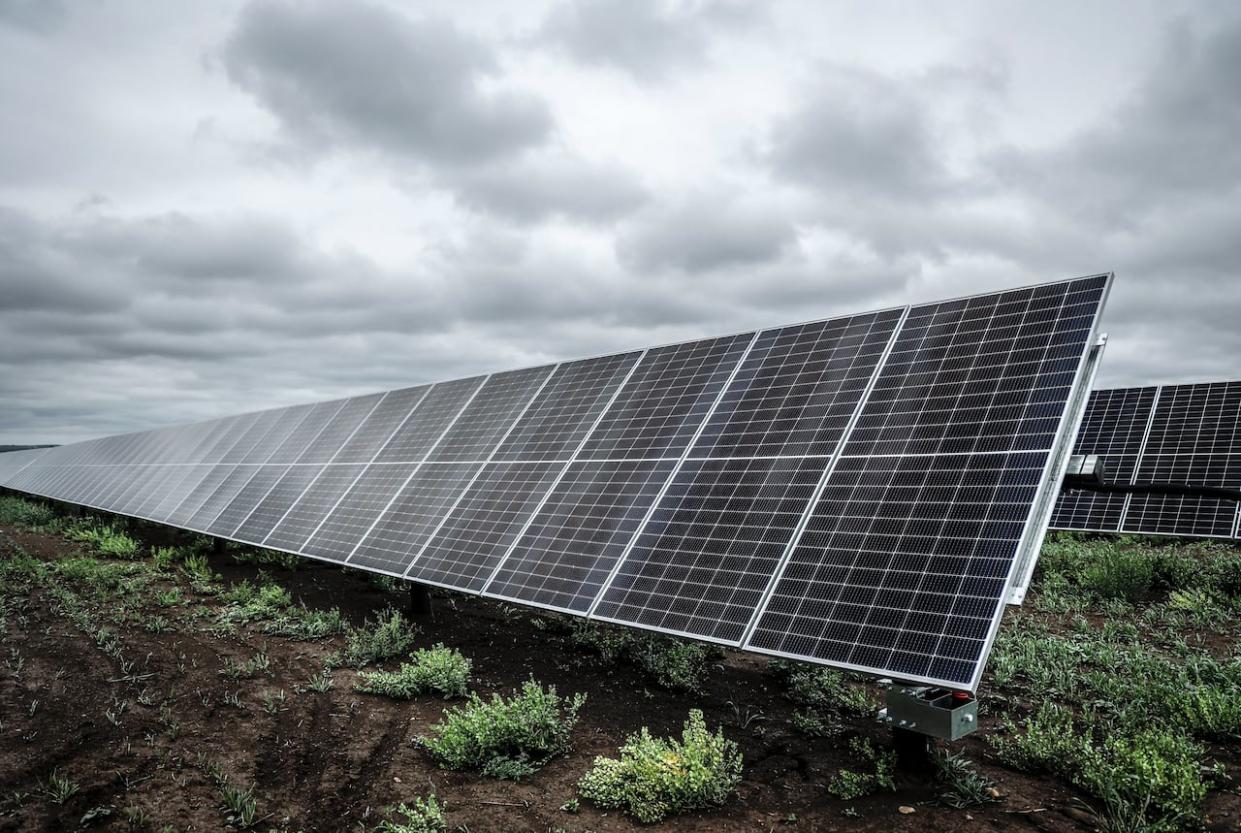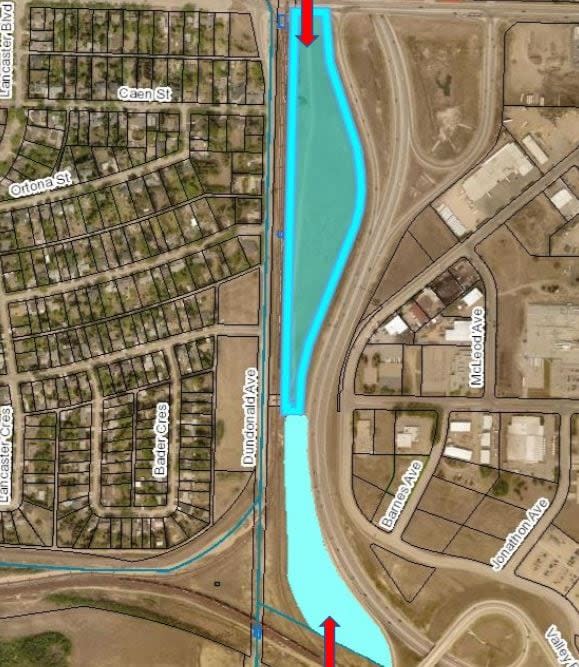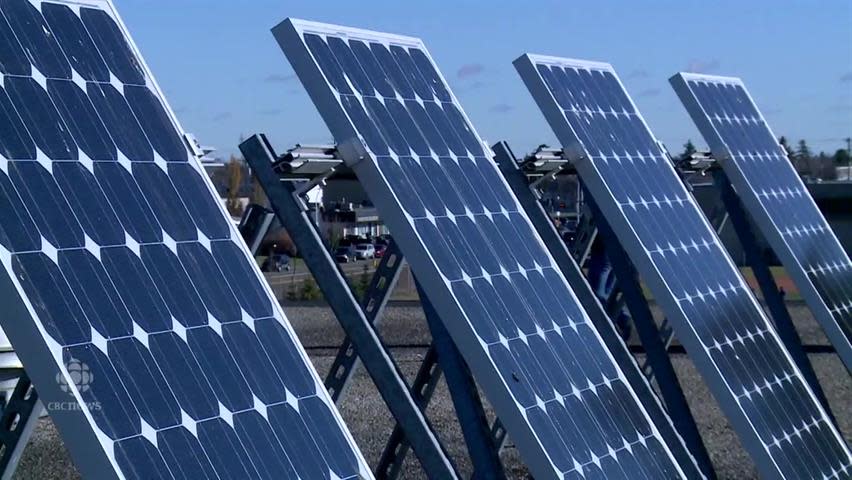Solar farm project near Saskatoon's Montgomery neighbourhood back on city's agenda

Saskatoon's first utility-scale solar project could be back on the path to being operational by next summer if it gets the green light from a city committee Wednesday morning.
If approved, the solar project is expected to generate three megawatts per year, enough to power 475 homes.
It would be located on a 5.6-hectare parcel of land that runs along Dundonald Avenue, east of the Montgomery Place neighbourhood.
José Cheruvallath, Saskatoon Light and Power's metering and sustainable electricity manager, said the project will help the city achieve plans to generate 20 megawatts of solar power on municipal land within the next decade.
"The project directly helps the City of Saskatoon lower its electricity emissions by approximately 700 tonnes of carbon dioxide equivalent each year, and this is the equivalent of removing about 150 cars from the road each year," Cheruvallath said.

A map of the proposed solar farm running along Dundonald Avenue. (City of Saskatoon)
The project was originally approved last fall at a cost of $4.25 million, but when tenders came back the projected cost for the project had almost doubled.
"I'm happy after lots of talk and and exploration to see this coming back with such a solid feasibility study and plan," said Mayor Charlie Clark at the time. "It seems like a very achievable plan here."
On Wednesday the city's environment, utilities and corporate services committee will revisit the proposal.
"[On Wednesday] three options are being presented to committee. Essentially, it would range from staying within the approved budget to building to its maximum potential in scope," Cheruvallath said.

The project would fit in with the city's plans to generate 20 megawatts of solar power on municipal land within the next decade. (CBC)
Administration is recommending the project go forward with the original proposed design at cost about $8.5 million.
"We feel it is appropriate given that the procurement was done competitively," said Cheruvallath, adding material costs have increased significantly in the last two to three years.
"Despite the higher costs and expanded scope, we're still expecting the project to have a positive return on the city and have significant environment benefits that come with generating clean, renewable energy."
If the committee votes in favour of the project, it will then need to get final approval from city ouncil.
Cheruvallath said it will take 12 to 18 months to build a solar farm of this size, so if approved this month it could begin operating in the summer or fall of 2025.


